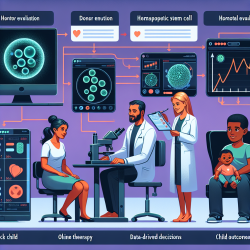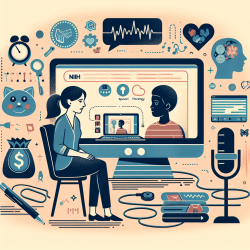As practitioners in the evolving landscape of therapy, we are continually seeking ways to improve our skills and outcomes for our clients. The recent research article titled Exploring the Question: “Does Empathy Work in the Same Way in Online and In-Person Therapeutic Settings?” offers groundbreaking insights that can significantly enhance our practice, especially in the context of online therapy.
The study compares the perception of empathy in online versus in-person therapy sessions. Surprisingly, patients reported feeling more empathic support from their therapists in online settings. This finding is crucial for practitioners, as empathy is a strong predictor of successful therapy outcomes.
Here are some key takeaways from the research:
- Patient Perception: Patients felt significantly more empathic support in online therapy sessions compared to in-person sessions.
- Therapist Self-Assessment: Therapists did not perceive a significant difference in their ability to offer empathy between the two settings.
- Concordance of Perception: The agreement between patient and therapist on empathy and support was higher in online sessions.
These findings suggest that online therapy can be just as effective, if not more so, in building a strong therapeutic alliance. This is particularly relevant in today's context where remote therapy has become more prevalent due to the COVID-19 pandemic.
As practitioners, we can leverage these insights to improve our online therapy practices:
- Enhance Digital Empathy: Focus on facial expressions, vocal intonation, and attentive participation to convey empathy effectively in online settings.
- Self-Reflection: Use the web camera to observe and adjust your own expressions and behaviors, enhancing your empathic presence.
- Patient Comfort: Ensure that the online setting is comfortable and private for the patient, minimizing distractions and enhancing the therapeutic experience.
To read the original research paper, please follow this link: Exploring the Question: “Does Empathy Work in the Same Way in Online and In-Person Therapeutic Settings?”
Implementing these findings can help us provide more effective and empathic online therapy, ultimately leading to better outcomes for our clients. Let’s embrace the digital age and continue to evolve our practice for the better.










